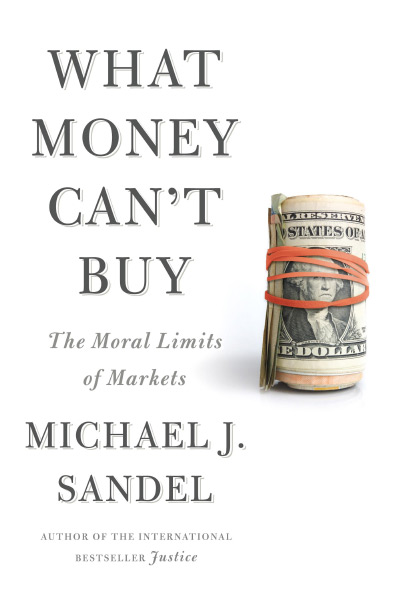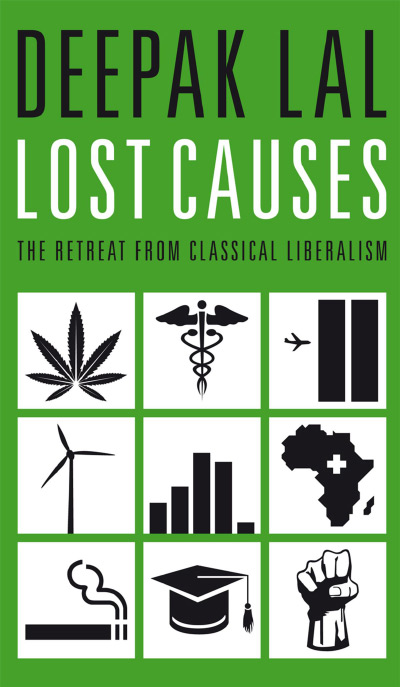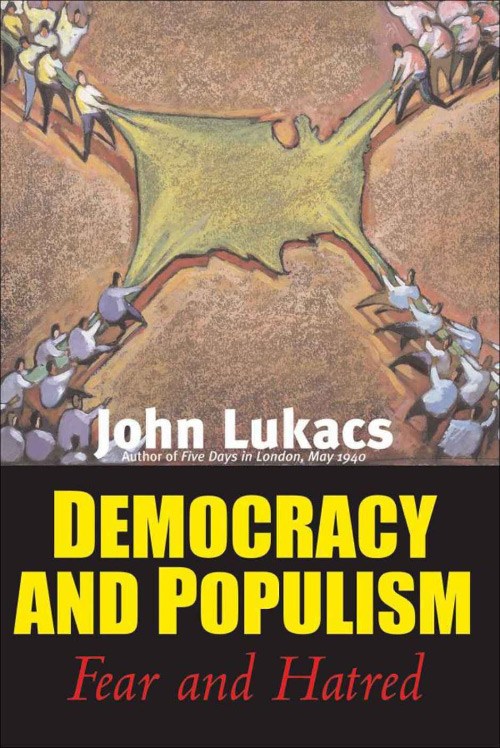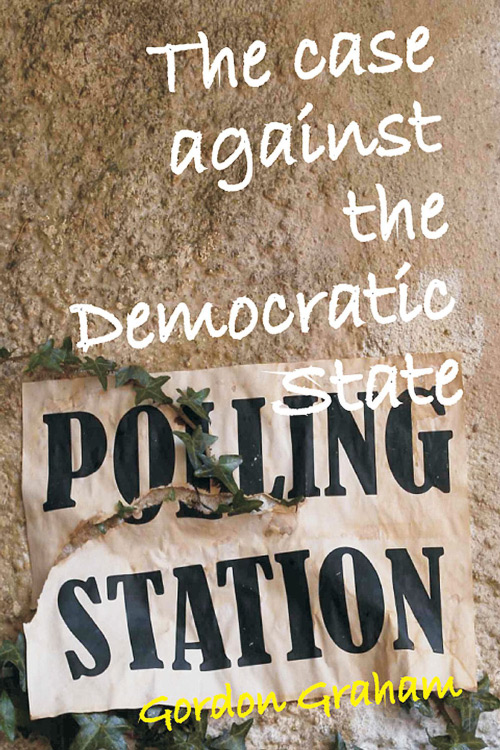“I have suggested elsewhere,” writes Robert Conquest, “that a curious little volume might be made of the poems of Stalin, Castro, Mao and Ho Chi Minh, with illustrations by A. Hitler” (p. 208). That sounds like a good idea to me. I would suggest that a second volume be added, consisting of critical commentaries by Shaw, Neruda, Pound, Sartre, Heidegger, and other intellectual and artistic admirers of the twentieth century’s collectivist monstrosities. For a slightly higher price, the publishers could supply a video of great moments from Sergei Eisenstein and Leni Riefenstahl.
Conquest’s point is not that the works he mentions are bad art, though probably all of them are. It is that neither “art” nor “education” was sufficient, in the century just past, to prevent their devotees from ignoring, acclaiming, or collaborating in the murders of hundreds of millions of fellow human beings—sacrifices on the altar of political ideals.
Conquest will take his place in history as an intellectual who devoted himself to telling the simple truth about the vileness of those ideals and acts. His books about the horrors of Soviet history, most notably The Great Terror (1968) and The Harvest of Sorrow (1986), showed how wrong other intellectuals were to believe that there was some great moral difference between National Socialism and Soviet Socialism. Although those books have made a large impression on general readers, they have made a remarkably small one on the academics and other thinkers of high thoughts who continue to affirm that Marx was a great political philosopher, not to be judged by the apparent effects of his political theories, whereas such anti-Marxist thinkers as Ludwig von Mises and F. A. Hayek were . . . well, who exactly were they, anyhow?
Conquest reviews the history of intellectual responses to the Soviet Union with a justifiable sense of outrage. The great writers, the impassioned friends of peace, the profound social thinkers and close students of history have had much to say, and their sayings should not be forgotten. My favorite item from this book is a remark by the historian Manning Clark, “who wrote that Lenin was ‘Christ-like, at least in his compassion,’ and was ‘as excited and loveable as a little child’” (p. 129–30). Unfortunately, the results of the excited child’s experiments were not entirely happy ones.
They were, indeed, pretty much what could have been (and was) predicted by people not burdened with reputedly advanced intellectual equipment. Leave aside, for a moment, the millions of dead bodies. Consider purely practical matters. As Conquest notes, “even now there are fewer miles of paved roads in the whole ex-USSR than in the state of Ohio” (p. 103). Ten years ago, when the Soviet Union was tottering to its end, “Moscow’s Health Minister revealed that half the hospitals had no sewerage, 80 percent had no hot water, and 17 percent no piped water at all” (p. 106).
If calling attention to these sad little facts is a symptom of “Western triumphalism,” make the most of it. There are worse things than triumphalism. In the early 1960s, U.S. officialdom was concerned about the possibility that the United States might fall behind the Soviet Union in the economic race. Nikita Khrushchev was taken seriously when he predicted that “by 1980 the Soviet Union would ‘overtake America’ in everything—‘food, wealth, comfort, industrial strength’” (p. 106). No one took “1980” seriously, but the general idea was regarded as, well, unsettling. Even staunch cold warriors often showed themselves collectivist enough to believe that somehow communism might work. Their gullibility was an indication of how far gone intellectually the West really was.
Past history? Not entirely. Nobody in the Western political class still argues that we need a master plan for the whole economy, but master plans for the various parts of the economy are constantly being devised. Cuba is still praised for its supposed achievements in health care and education, without regard to the definition of care or the content of education. And the atmosphere currently breathed by trendy intellectuals is aptly characterized by Conquest as “sub-Marxist” (p. 220). The Marxist sense of the individual’s subordination to society persists in “social constructionism” and many another academic ism and in the widespread assumption that products of the intellect can never transcend their social origins—assuming, of course, that those origins are “Eurocentric” or “androcentric.”
Marx would ridicule the contemporary results of this tendency. Lenin, as Conquest suggests, would call them “an infantile disorder,” though “senile disorder” would be a better characterization. The economics of Marxism has been discredited; its sociology has been discredited; even its theory of art has been discredited; yet Marxist political assumptions linger on: “First, that power is everybody’s prime, even exclusive, concern. Second, that in every transaction there is a winner and a loser: that it is a zero-sum game, and that the idea of both sides or classes benefiting is impossible” (p. 220–21).
These ideas, routinely deployed in critiques of capitalist society, are much more applicable to the collectivized societies that the critics appear to favor, societies in which the pursuit of political goals restricts economic growth and in which there is a constant scramble for power over scarce resources. Contrast modern capitalist societies, in which the economic pie continually expands, offering larger and larger slices to people in every social class. Critics of capitalism did not anticipate this development, and they cannot explain it, except by insisting, in increasingly mystifying ways, that it is all a distraction from or a mystification of the real issues. But if Conquest’s book has a thesis, it is that intellectually sound explanation cannot possibly be what the intellectual friends of collectivism have been after. Their priorities have been different.
One aim has been the protection of their own scarce mental capital: “Even in the true sciences, deep intellectual investment in what turns out to be fallacy is not easily given up” (p. 146). A generation of intellectuals instructed in collectivist methods of analyzing political and economic phenomena may continue to employ those methods despite a mass of disconfirming evidence and to pass them on in some professionally amended and adjusted form to the next generation of intellectuals. Conformity to a tenured tradition is, of course, a powerful source of prestige, and prestige, like tenure, is difficult to forgo.
Investments in moral standing have also been made. For more than a century, intellectuals have regarded themselves with pride as the consciences of society, fearlessly unmasking its evils and injustices. This would be a noble calling, if the consciences were equal to the roles, but even very good consciences can be seduced by pride, and in a free society such pride can often be enjoyed with impunity. One can unmask and demystify freedom itself and lose nothing significant by doing so—certainly not one’s freedom. The word smug seems to have been invented for this occasion. Conquest describes Hewlett Johnson, the famous “Red Dean of Canterbury”: “The impression given was one of overpowering vanity—of ‘Look at me, untainted by bourgeois prejudice!’” (p. 120).
The twentieth century presented a seemingly endless series of consciences too vain to vex themselves with thought. But “the true conscience,” as Conquest says, “includes an intellectual conscience,” a desire to find out whether one’s ideas are true (p. 201). People who accept Marx’s social analysis without worrying about the validity of the underlying economic analysis, about which Marx himself obsessively worried, clearly lack such a vital component of conscience. It can hardly be surprising that idealists of this kind should also fail to worry much about the discreditable means that Marxist regimes have used to implement their discredited ideas.
In the 1930s, Isabel Paterson confronted most of the problems with which Conquest is now concerned. She suggested that “what ails the alleged intellectuals . . . is that they aren’t.” Conquest refuses to go that far, although he must be sorely tempted. He focuses instead on the broader class of people that the communists used to call the intelligentsia. His term is intelligentry, a word intended to capture the group’s involvement with genteelly mainstream occupations staffed by “educated” people. These people have been “educated” (the scare quotes are Conquest’s) in the assumptions of “a career-conscious and stipend-competitive modern academic caste” (p. 235). Academic stipends and careers normally depend on acceptance of the ideas prevailing in a particular academic discipline, no matter how lax the standards of that discipline may be. The pattern is essentially bureaucratic: “A bureaucrat today does not think of himself as putting into effect part of a highly debatable idea. He takes the nature of his aims and methods for granted” (p. 201).
Anyone who watches what passes for public debate among fashionable intellectuals must have noticed the meagerness of their assumptions, the lack of historical knowledge necessary to produce them, and the dogmatism with which they are urged. One may also notice how frequently political debate focuses on the ways in which the state can intervene to solve some problem, not on whether the state should intervene. In other words, the least radical questions are entertained, especially by the soi-disant radicals. This constriction of ideas is only natural for “a class of citizens who are, not temporarily but over years, dependent on government support and are a constituency for its continuance” (p. 201). You need not be a Marxist sociologist to come up with this particular class-related explanation, and it has considerable weight. Like almost all of Conquest’s other explanations of intellectual failure, it is eminently plausible.
Still, something is missing. You can add up Conquest’s separate explanations for the intellectual failure of the modern era—vanity, fashion, lack of intellectual curiosity, bondage to professional traditions and temptations—but you never quite arrive at a sufficient account of the matter. It is, to borrow the title of a celebrated painting of the Soviet era, The Mystery of the Twentieth Century. Conquest, however, produces yet another explanation, one that he regards as crucial, having to do with the survival of a “primitive” tendency to believe in absolutes and to assume that they can be realized by force. “Any concept,” he says, that is “given anything like absolute status becomes not a guide to action but an abstraction whose imposition on reality reveals an incompatibility, as engineers say of parts that do not fit, and that can only be made to fit by main force, and even then ineffectively or ruinously” (p. xiv).
Now, this idea, when stated in a much milder form—“The trouble is, again, a belief in various ‘certainties’ accepted on insufficient grounds” (p. 199)—is self-evidently true. But the notion that “absolutes” and “abstractions” are themselves to blame is almost self-evidently false.
The idea that you cannot eat your cake and have it, too, is an abstraction and an absolute. It is also a certainty. If you act on that idea, you will be less rather than more likely to believe the promises of some dictatorial regime. The ideas embodied in the Bill of Rights are also abstractions and absolutes. It is only by adherence to those absolutes that the freedoms for which Conquest has been such a noble advocate have been maintained. Of course, absolutes can be questioned. You can question the Bill of Rights or the principle of marginal utility or the law of gravity or the law of contradiction. Please do: you may find that after you have questioned them, you understand them better. You may even find that adherence to some principles justifies the use of force. The law of contradiction, to be sure, can be maintained without anyone’s applying force; it is self-enforcing. But when a gang of bigots shows up to convince a black family that it does not belong in the neighborhood, the family is fully justified in using force to maintain its absolute right to live there. Would Conquest agree? Of course he would, and nothing could ever get him to deny that Stalinism was wrong, absolutely, and needed to be resisted forcefully.
What, then, is the significance of his critique of absolutes? I am afraid that he is simply reenacting a confusion that has chronically beset true liberalism, often with fatal results. The past two centuries have been an ideological Mardi Gras, in which every mere theory has masqueraded as an absolute. Marx thought that bourgeois truth was relevant only to the bourgeois class, and Hitler thought that Jewish science was merely Jewish science, but neither of them questioned the absolute truth of his own theories. Liberals often countered by asserting that there are no absolutes in human life. This never convinced their adversaries, although it did make the liberals less decisive about their own ideas. But if Conquest’s book means anything, it means that the methods of ascertaining certain political truths are fully within our grasp.
Every reviewer has a wish list. I wish that Conquest had not undertaken a joust with the absolute. I also wish that he had not preached decisively Hayekian doctrines about the dangers of state encroachment, while tossing softball speculations about “a sense of balance, between the proper rights of the individual and the necessary rights of the state” (p. 15). What principles will allow us to strike that balance? Not the idea that “state ownership or control” should remain smaller than “a proportion that is under debate but is usually held to be a maximum of some 30 percent of GNP” (201). Thirty percent is a very great deal. And which 30 percent do we have in mind? Incidentally, how is it that states have “rights” instead of delegated powers?
Surely, however, only the most politically correct reviewer would repine at Conquest’s refusal to fulfill his every wish. The story of the twentieth century, so oversupplied with fascinating political theories and so undersupplied with political decency and honesty, would be unthinkably painful without the standard of independent thought maintained by a few people such as Robert Conquest.
| Other Independent Review articles by Stephen Cox | |
| Fall 1998 | Dr. Strangelove’s America: Society and Culture in the Atomic Age |
| Spring 1996 | The Vision of the Anointed: Self-Congratulation as a Basis for Social Policy |

















